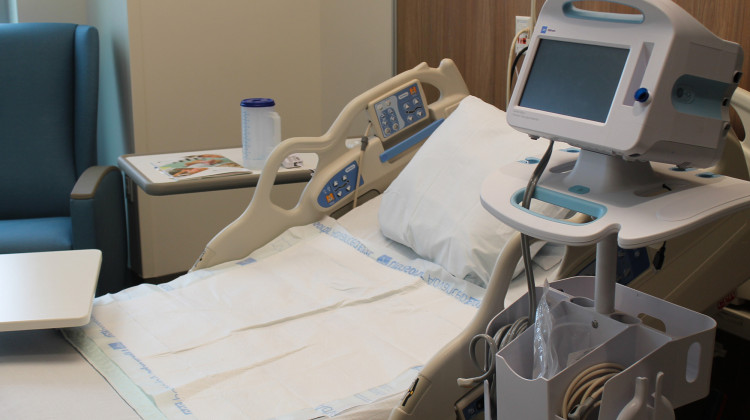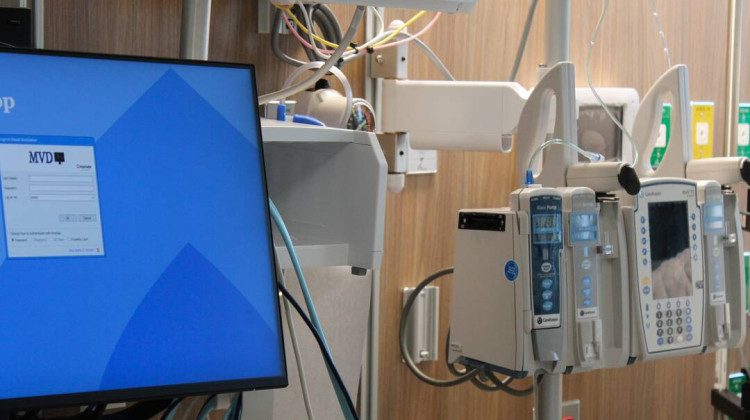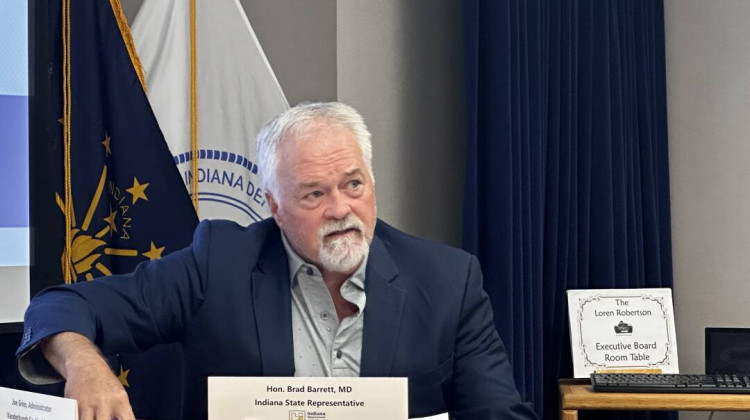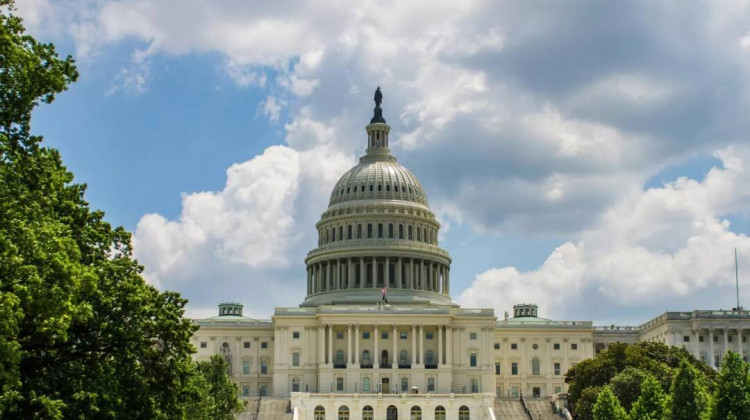
Under House Bill 1004, nonprofit hospitals that charge more than 300 percent of their modified Medicare reimbursement rate would lose nonprofit status.
Lauren Chapman / IPB NewsIndiana lawmakers want to bring health care costs down by applying pressure to certain hospitals. The House approved legislation that would revoke a hospital's nonprofit status if it charges too much for care.
Under House Bill 1004, nonprofit hospitals that charge more than 300 percent of their modified Medicare reimbursement rate would lose nonprofit status.
The author of the bill, Rep. Martin Carbaugh (R-Fort Wayne), said several Indiana hospitals have admitted hospital prices in Indiana are too high.
“It's up to the hospitals,” Carbaugh said. “All we're saying is, if you're not-for-profit, act like one. Price things better. If you're for-profit, I guess that's fine too.”
He said if hospitals don’t want to keep prices within the 300 percent range to maintain the nonprofit status, then they should be paying taxes like other for-profit companies.
However, some lawmakers are concerned that the language of the bill is too strict.
Rep. Robin Shackleford (D-Indianapolis), who has worked as an insurance broker, said the bill could take away nonprofit status for a single charge when it should be based on an average.
“When you're talking about a rate that is per charge, that is usually negotiated between a hospital and a pair, and it is done through their contract per service, that can be anywhere from 105 percent to 350 percent,” Shackleford said.
The bill does give hospitals the ability to reestablish nonprofit status by complying with the language within the bill for 90 days.
Certain eligible rural hospitals known as critical access hospitals are exempt from the legislation. But some lawmakers say that doesn’t mean it won’t cause harm to rural communities who may depend on nonprofit hospitals.
Rep. Ethan Manning (R-Logansport) said the rural hospital in his district is likely being sold to a nonprofit hospital system, but his community isn’t losing access to care.
“We'll take another pound of flesh from nonprofit hospitals,” Manning said. “Nevermind that in some cases, they are the only hospitals we have, the only options we have to maintain access to health care in some communities.”
Manning said if HB 1004 affected the hospital in his community’s ability to provide care, it would also impact the entire region it serves — not just one county. Manning said the House has put so much focus on health care costs without thinking about how these policies could affect other communities.
“We haven't had the time or the capacity to talk about the other things that matter in health care. Especially what we can do to support rural and underserved communities that struggle more with access than they do with cost,” Manning said.
Join the conversation and sign up for our weekly text group: the Indiana Two-Way. Your comments and questions help us find the answers you need on statewide issues, including our project Civically, Indiana and our 2025 bill tracker.
Rep. Ben Smaltz (R-Auburn) said HB 1004 isn’t perfect but Hoosiers are being financially "crushed."
“We've been trying to get this under control for years, this is an excellent step towards getting there,” Smaltz said.
Smaltz said HB 1004 takes two important steps forward.
He said the first is the nonprofit hospital reforms, which also includes a hospital facility fee excise tax.
Under the bill, nonprofit hospitals that charge a hospital facility fee more that 265 percent of their Medicare facility fee would be charged an excise tax or fee. The bill outlines where the fee would go, with 75 percent going toward the Medicaid program and the rest going toward health care workforce development in rural areas of Indiana.
The second step Smaltz refers to is language that was originally in House Bill 1586, which redesigns how the Medicaid expansion program in Indiana is funded and how hospitals are reimbursed.
The federal government funds 90 percent of the Healthy Indiana Plan, or HIP. The state is responsible for covering the rest, but none of it comes out of the state budget. Nearly all of it is covered through the Hospital Assessment Fee program. The Hospital Assessment Fee, or HAF, is a provider fee for Indiana hospitals that is then used to fund Medicaid reimbursements and administrative costs.
In the 2024 fiscal year, hospitals paid an estimated $1.6 billion in Hospital Assessment Fees. That amount was used to leverage about $5.5 billion in federal funds.
Indiana keeps 28.5 percent of Hospital Assessment Fee Funds for administrative fees, totaling about $300 million. The Indiana Hospital Association said through a complicated federal reimbursement process for Medicaid, hospitals receive about 57 percent of costs.
The new funding model would create the Managed Care Assessment Fee to boost the federal reimbursement to hospitals and cover 80 percent of their services costs. This would be a tax on insurance companies, which do not have a provider tax currently in Indiana.
The Managed Care Assessment Fee would generate enough to cover the cost of the $300 million that is lost by the state taking out administrative fees from the Hospital Assessment Fee.
Carbaugh said the new funding model helps maximize those dollars to support the hospitals, but he wants to help Hoosiers fight high hospital costs but putting a cap on what nonprofit hospitals can charge.
The bill was a part of the House GOP’s legislative priorities. It now heads to the Senate.
Abigail is our health reporter. Contact them at aruhman@wboi.org.
 DONATE
DONATE








 Support WFYI. We can't do it without you.
Support WFYI. We can't do it without you.